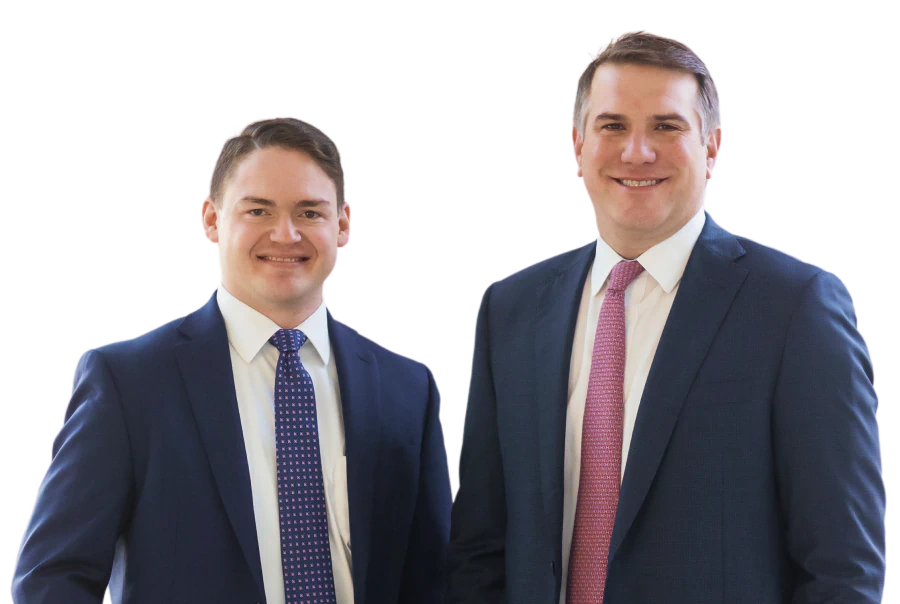Being charged with any type of healthcare fraud is always a serious matter. A conviction for healthcare fraud and abuse can have big consequences such as potential loss of medical license(s), hefty fines, or even prison time. You deserve immediate attention from an experienced law firm to diligently fight these charges.
The healthcare fraud lawyers at Sellers Law Firm have the knowledge and experience needed to get the best possible outcome. We’ll do a consultation, take a look at the facts objectively with you, the client, and then fight diligently for your reputation and best interest if hired.
Schedule a consultation to discuss your case and find out if Sellers Law Firm is the right team for you.
What is healthcare fraud?
According to the Texas Penal Code Chapter 35A, healthcare fraud is defined as when a person “knowingly makes a false statement or misrepresentation that a person received payment or benefits under an unauthorized health care program, the benefit or service was not medically necessary, and/or was charged for more than the service or benefit was worth.”
Accusations of healthcare fraud go beyond a simple breach of ethics or erroneous calculations; they carry the weight of intentional deception for monetary or other personal gains.
What are the most common types of healthcare fraud?
There are multiple varieties of medical fraud, all of them serious, but in our experience, two stand out as the most common: medical billing fraud and Medicaid fraud.
Medical billing fraud
It comes as no surprise when we say this to an experienced medical professional, but billing for healthcare is extremely complicated. However, to a layman, it might appear more black and white.
An experienced Dallas healthcare fraud lawyer can help those accused of billing fraud to bridge the gap between healthcare information and legal jargon to ensure the circumstances of the charges are fully understood by all.
The hypersensitive world of medical billing is imperfect. First, there is the ICP coding used primarily for private payers. These ICP codes are updated annually by the American Medical Association.
Then there is the HCPCS coding used for CMS and other third-party requirements, with coding levels that map onto ICP coding (e.g., level I) and those that do not (e.g., level II).
Furthermore, HIPAA requires the use of HCPCS codes for interoperability. With all these coding systems and languages, one can see where the introduction of errors, intentional or unintentional, can start.
How do experienced medical professionals end up with billing errors? The possibilities are endless. Faulty interoperability technology services, not having the latest update in a billing cycle, the hiring of a new billing specialist, new hire medical assistants unaware of the importance in objective files, the transfer between written and electronic records of services rendered by larger practices, and simple ambiguity between certain coding decisions and making a decision for your practice.
Examples of medical billing fraud
Here are some of the most common health insurance and medical billing fraud examples our attorneys see:
- Upcoding, or billing for a more expensive service than what was given;
- Unbundling, or billing each stage of a procedure as if it was a separate procedure
- Other billing issues, e.g. billing for services not rendered
- Falsifying patient records to justify procedures that aren’t medically necessary
- Waiving patient copays or deductibles and overbilling the insurance carrier
At Sellers Law Firm, we believe that having a powerful healthcare fraud defense that includes a thorough investigation of the charge and the circumstances of our client leads to the best outcome.
Medicaid fraud
Medical fraud occurs when a medical provider knowingly tries to bill for and collect money from a government Medicaid program that they are not legally entitled to.
The Center for Medicare and Medicaid Services (CMS), is the federal agency that administers this benefits program and the protocols that audit it for false statements, unnecessary treatments, or misuse of funds.
Anyone can report you if they suspect this type of issue under the federal False Claims Act, which can result in hefty penalties from thousands to upwards of millions.
Once someone is reported, the Medicaid fraud control unit (MFCU) of your state will begin to investigate the claim. So, when asked, what is Medicaid fraud?, a quick response could be, it’s something serious and costly.
Here are some of the most common Medicaid fraud examples our attorneys see:
- Upcoding, or billing for a more expensive service than what was given
- Duplicate claims, filing more than one claim for only one service provided
- Medical identity theft, the use of someone else’s Medicaid ID card to obtain medical goods, services, or funds
- Lack of medical necessity, the billing for services that are unnecessary (see lack of medical necessity examples)
- Prescription drug fraud, altering or writing unnecessary drug prescriptions (see prescription fraud in Texas)
- Payouts to refer patients, accepting or making payments for the referral, recommendation, or arrangement for the purchase of items paid for by Medicaid
- Other billing issues, such as knowingly billing for an ineligible beneficiary to qualify for Medicaid, or billing for services or items that were not provided
If you are suspected of having committed healthcare fraud or if you are facing False Claims Act penalties then the healthcare fraud attorneys at Sellers Law Firm can help. Sellers Law Firm is known to provide clients with aggressive, thorough, and trial-tested defense against False Claims Act claims.
Why hire Sellers Law Firm
Understanding what you were charged with is as important to you as it is to us, your future career depends on the ability you have to both obtain an outcome that is just and swift, and also your ability to defend to boards and future contracts the outcome obtained to continue with your specialization within healthcare.
Working with a firm experienced in defending different types of healthcare fraud is critical to the outcome of your case. You only get one shot at this: make it count. Call the healthcare fraud attorneys at Sellers Law Firm at 817-928-4222 today or schedule a free consultation online.
More Helpful Articles by Sellers Law Firm





